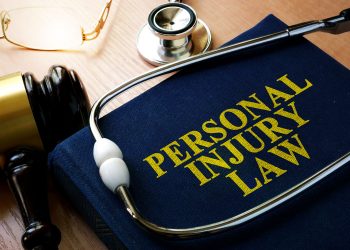While no amount of money can undo a crash, compensation can help you pay for medical expenses and other costs related to the accident. It can also help you recoup lost wages if your injuries prevent you from returning to work.
Representatives from trucking companies and their insurance carriers may try to contact you after a crash. You should never sign any documents or give a recorded statement to them without first consulting an attorney.
Establishing Fault
Establishing fault is the first step in Pursuing claims for injuries in trucking accidents damages for your injuries. It requires a thorough investigation of the crash and its causes. It also involves obtaining medical records that provide an accurate picture of your injuries, including their severity, limitations, and impacts on your life.
Trucking companies are often responsible for accidents involving their trucks, especially if the truck driver was acting within the scope of his or her employment. This is because trucking companies have greater resources and a legal obligation to provide their drivers with safe vehicles and training. However, if the company failed to enforce safety rules or encouraged their drivers to break the law (like by encouraging them to log more hours than they are legally allowed to), it may be found liable for a crash.
The driver of any other vehicle that was involved in the accident may share responsibility, as New York is a comparative negligence state. In cases where multiple parties share liability, the injured party will be able to recover damages proportional to their percentage of fault.
Gathering Evidence
Keeping track of the evidence collected during a crash can help you build a strong claim for damages. Evidence often includes the following:
Police accident reports – These documents document important information like the time, date, location, and description of the crash. They may also include the officer’s initial determination of fault.
Witness testimony – Eyewitness accounts of the incident can provide valuable insights into how the trucking accident occurred. For example, they can help establish that a driver breached their duty by speeding, changing lanes improperly, or driving while distracted.
Mechanical inspection and repair reports – These can reveal evidence of mechanical failures caused by defects or inadequate maintenance. Such failures can cause a truck to lose control, jackknife, or roll over.
Notes of your pain and discomfort – Keep a journal or diary to record the physical pain and emotional distress you experience due to your injuries. You can use this information to prove the severity of your injuries.
Negotiating with the Insurance Company
Often, the trucking company’s insurance agent will contact you soon after a crash to offer you a settlement. It is usually best if you decline to speak with them and instead direct them to your attorney. This way you will not say anything that could be interpreted as admitting fault or contributing to your injuries.
Your lawyer can help you to calculate the true value of your injuries, and will prepare a document known as a demand letter that outlines your losses. This will include an outline of the medical expenses that you have incurred and how they will impact your future financial situation.
In addition to medical expenses, your lawyer can also help you to calculate the losses related to lost income, property damage, pain and suffering. These items are more difficult to assign a monetary value to, but your lawyer can use their experience in handling truck accident cases to obtain fair compensation for these losses as well.
Hiring an Attorney
Truck accidents can be complicated and cause severe injuries. This can lead to long-term medical treatment, loss of income and other expenses. It is important to have a strong NYC truck accident lawyer to make sure that your losses are fully compensated.
Attorneys are experienced in collecting and analyzing the evidence needed for successful lawsuits. This includes everything from eyewitness accounts to medical records and even data from the truck’s GPS or other devices that are required by law to report certain information following a crash.
These devices can show driver inputs, technical information about the vehicle and even the date and time of the crash. Your lawyer will immediately send a preservation letter to the trucking company and the driver to ensure that this important data is not lost or destroyed. If the trucking company was negligent in hiring or overseeing the truck driver, it may be held liable for the crash. This could include violations of hours-of-service regulations or failure to conduct a proper background check.














